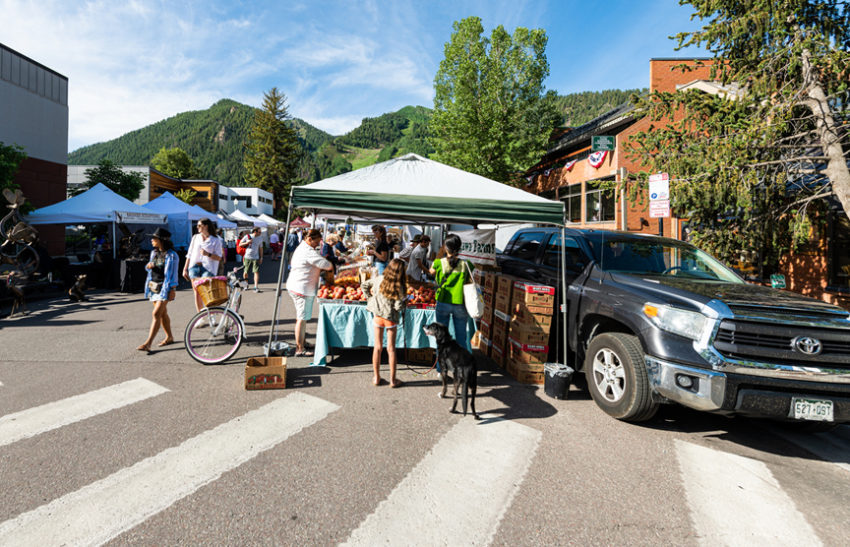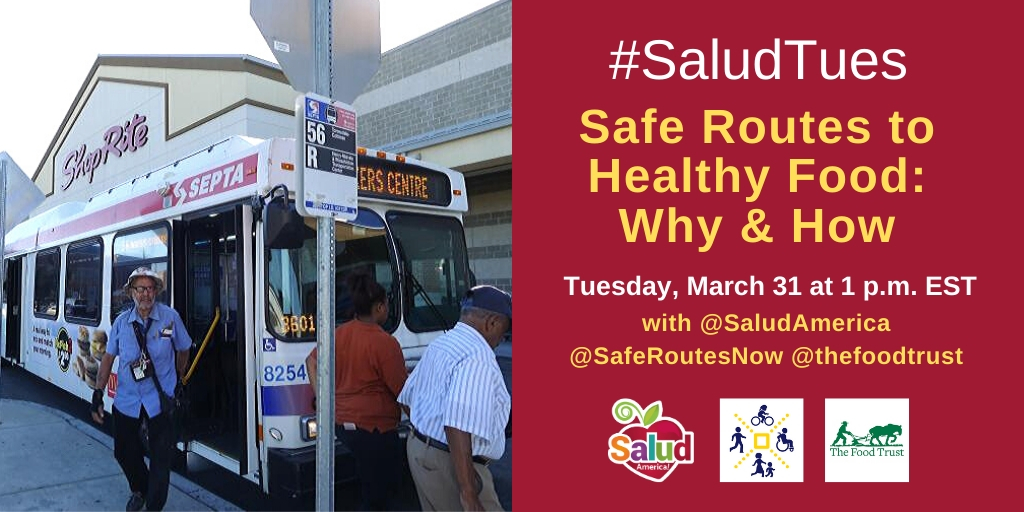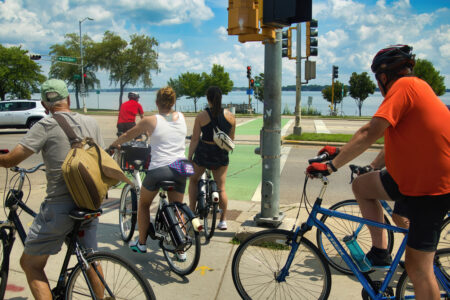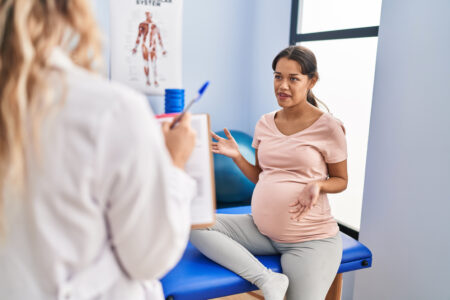
Share On Social!
Everyone deserves a safe and reliable way to get to healthy food—whether a supermarket, farmers market, or food bank.
Without nearby grocery stores, people must travel further or rely on corner stores, which often sell food that is poorer in quality and more expensive, and without crosswalks, sidewalks, and bike lanes, people walking and biking are at increased risk of injury or death.
The Safe Routes National Partnership released a new report with policy implications, opportunities, and recommendations to help you advance safe routes to healthy food in your community.
 Let’s use #SaludTues on March 31, 2020, to tweet about the problem, opportunities, and policy recommendations to improve access to healthy foods, particularly for people without cars.
Let’s use #SaludTues on March 31, 2020, to tweet about the problem, opportunities, and policy recommendations to improve access to healthy foods, particularly for people without cars.
- WHAT: #SaludTues Tweetchat: “Safe Routes to Healthy Food: Why & How”
- TIME/DATE: 1-2 p.m. ET Tuesday, March 31, 2020
- WHERE: On Twitter with hashtag #SaludTues
- HOST: @SaludAmerica
- CO-HOSTS: Safe Routes National Partnership (@SafeRoutesNow); The Food Trust (@thefoodtrust)
- OPTIONAL HASHTAGS: #srthf #saferoutes
We’ll open the floor to science, your experiences and stories, and best practices as we explore:
- Challenges people face in accessing healthy, affordable food;
- The benefits of Safe Routes to Healthy Food; and
- What state and local governments and public health and transit agencies can do to advance Safe Routes to Healthy Food.
Use #SaludTues to follow the conversation and share the latest in how transportation is connected to health.
#SaludTues is a weekly Tweetchat about Latino health at 12p CST/1p ET every Tuesday and hosted by @SaludAmerica, the Latino health social media campaign for the team at the Institute for Health Promotion Research (IHPR) at The University of Texas Health, San Antonio.
By The Numbers
27
percent
of Latinos rely on public transit (compared to 14% of whites).



